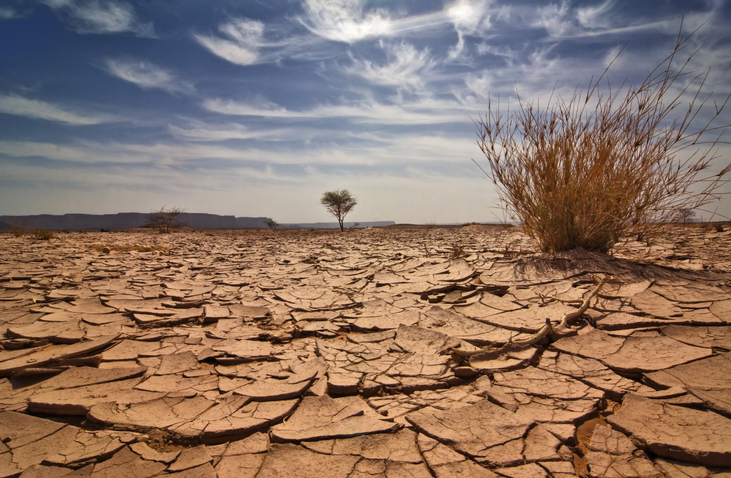“God’s in charge.” This may seem like a trite phrase, but it’s the substance of our readings today, and it has a real impact. It’s easy enough to see this in the first reading, where God causes a multiple-year drought through the prophet Elijah. The drought is a direct response to Ahab’s sin of idolatry, taking the Baals as gods instead of the true God of Israel. It is a reminder that not only is God real, but He sees our infidelity and acts swiftly.
This is an important message, especially today. Many Catholics (myself included), shrink from embracing the full demands of the Gospel. This could mean not living up to the moral teaching of the Church, not witnessing to the Faith in front of family, or growing lethargic in our devotion. Coming out of quarantine, most of us are not technically required to attend Sunday Mass. But will we continue to keep holy the Sabbath day? This commandment was never revoked. Even if the Sunday obligation is suspended, we are still bound by the third commandment. If we keep the commandment, will we do so eagerly, or begrudgingly? Now that we have had months to stay at home, it is easy to come up with excuses not to go out and live the Gospel.
It is even easier to do this when we consider the economy (as in arrangement) we are in. Before the time of Christ, the Lord dealt swiftly and decisively with sin. He was ready with drought, famine, earthquake, plague, you name it. These would often come immediately after the sin had been committed, to make the connection between sin and punishment abundantly clear. In the New Covenant, God is no less watchful, but He has decided to save much of our punishment for either Purgatory or Hell. As a result, we can be tempted to forget that God still plans to seek justice for the sins committed against Him. Let us remember that the Lord is still in charge.
On the other side, Jesus reminds us in our Gospel that we will be abundantly blessed when we defer to God’s providence. Once we acknowledge that the Lord is in charge in our attitudes, we are set to receive abundant graces. The Beatitudes represent the characteristics of a saint: poverty of spirit, mourning, meekness, desire for righteousness, mercy, cleanliness of heart, peacemaking, and persecution for righteousness’ sake. In each of these, there is an acknowledgment that God is in control. We step back and allow Him to act, rather than stepping forward to run the show.
By poverty of spirit, we allow ourselves to detach from the things of this world. Realizing that all things exist in order to turn us to heaven, we embrace the heavenly and dwell on the things that are above. This invites God to take a more active role in our daily lives.
If we mourn properly, we do so acknowledging that the Lord is the master of our fate. He holds the souls of the just in His hand. In meekness, we allow the Lord to increase while we decrease, giving Him the glory. By desiring righteousness, we align our priorities with God’s, recognizing that His values and commandments ought to be followed at all times. He is given charge of our action.
Showing mercy to others opens our hearts to God’s direction, but it also leaves justice to God, whose prerogative it is to avenge at the end of time. Cleanliness of heart and peacemaking help us to avoid tainting our souls with sin or staining the world with unnecessary conflict. They allow God to reign in our hearts and our world. If we bear persecution for the sake of righteousness, we silently but humbly acknowledge that this struggle is not the final horizon. Pain on this earth will come, but ultimately we know that God commands our destinies.
With this perspective in mind, we can see the difference between king Ahab and a follower of Christ. The king thought his own way to be best and likely did not think that his deeds would be seen and avenged by the Lord. He relied on himself and on the Baals, and for this, he was punished. A follower of Christ lives the Beatitudes, enabling himself to be open to God’s providence and to recognize His sovereignty. He does not follow his own designs, but God’s. As the Psalmist proclaims, “My help comes from the Lord, the maker of heaven and earth” (Psalm 121:2). Let us all adopt this same attitude.

David is the Associate Director of Liturgy for a group of parishes in Pittsburgh, Pennsylvania. When he is not spending time with his wife and infant daughter, he is writing on philosophy and theology for various online publications. You can find some of these in Crisis Magazine and the Imaginative Conservative, and you can contact him at ddashiellwork@gmail.com.
